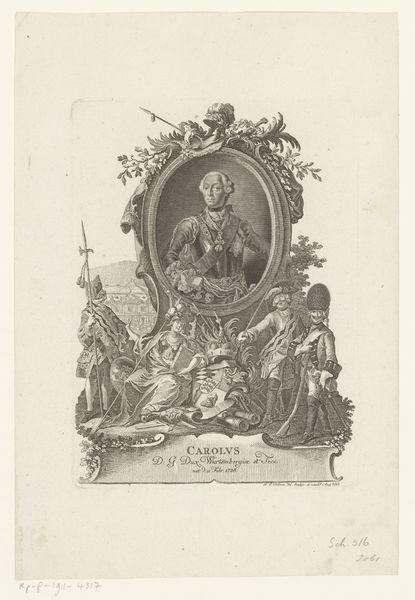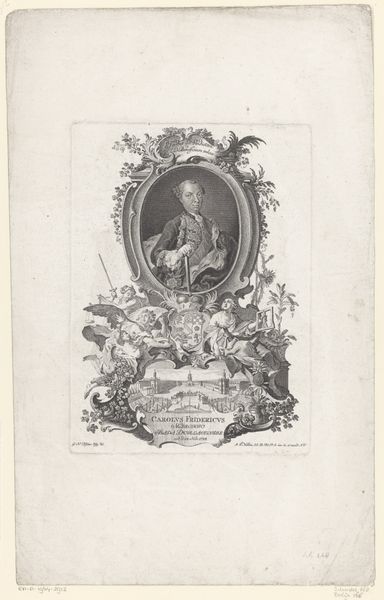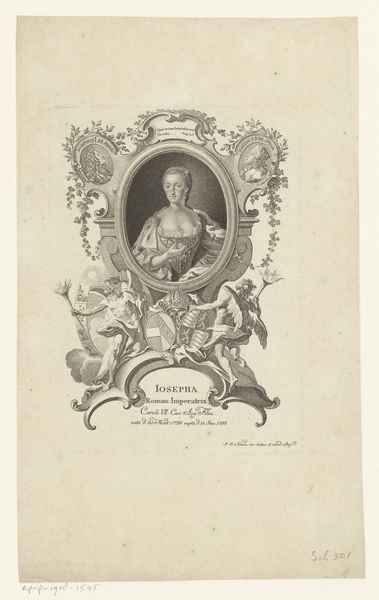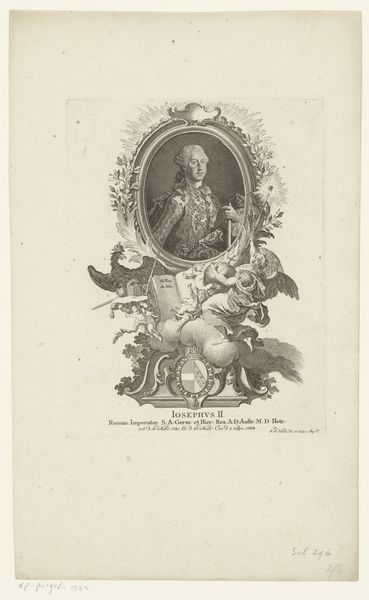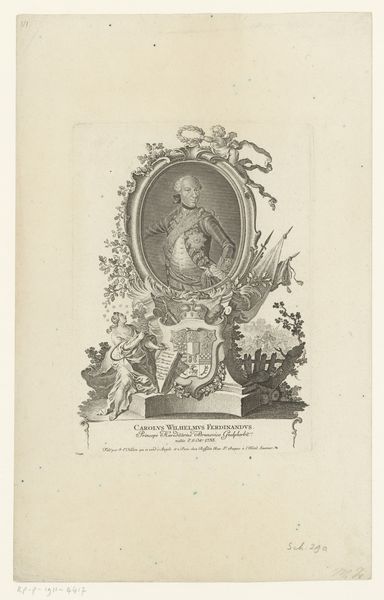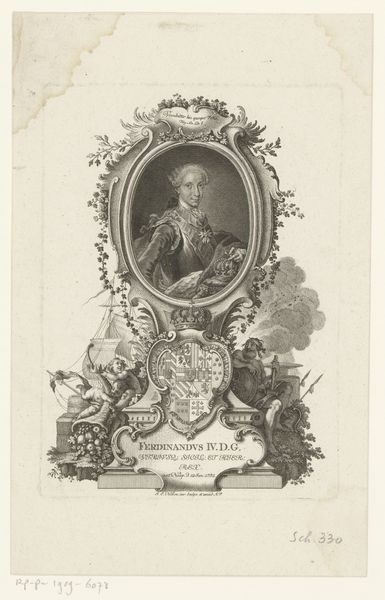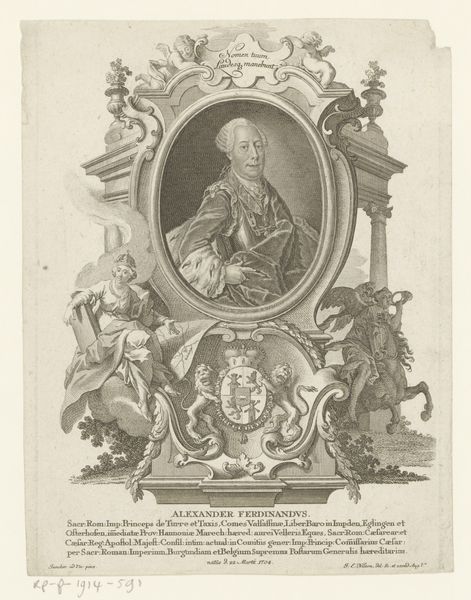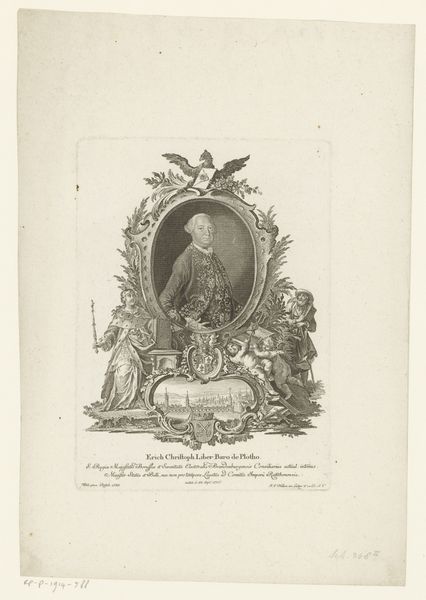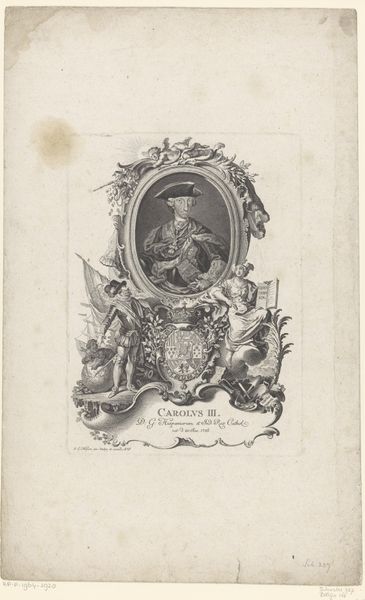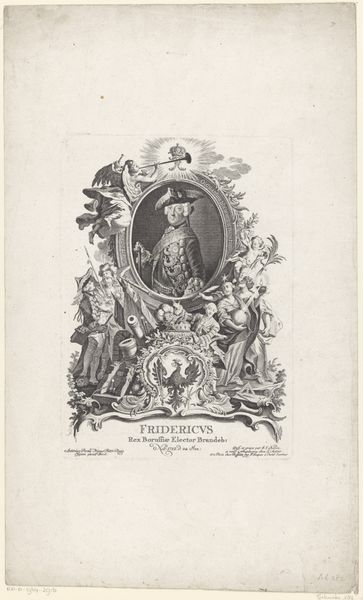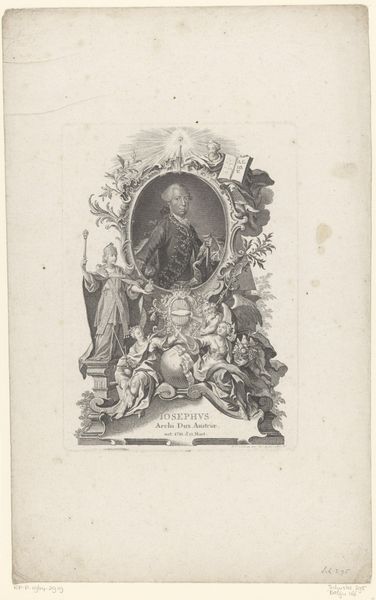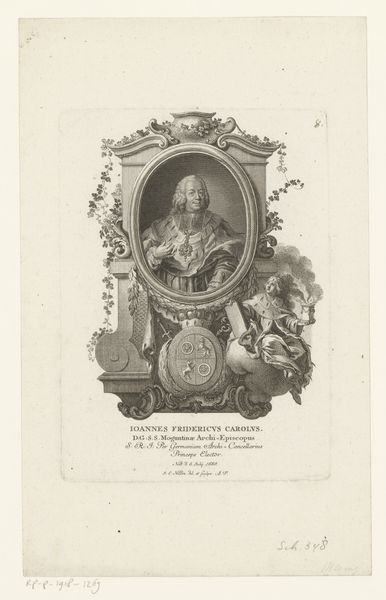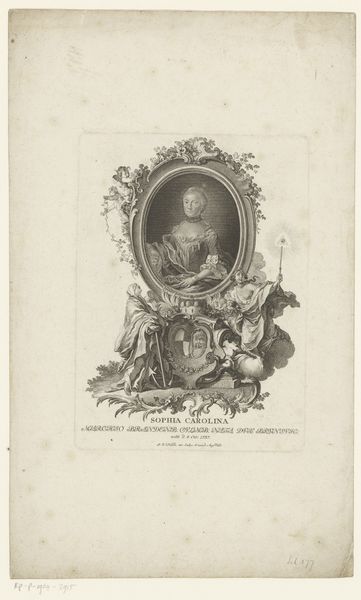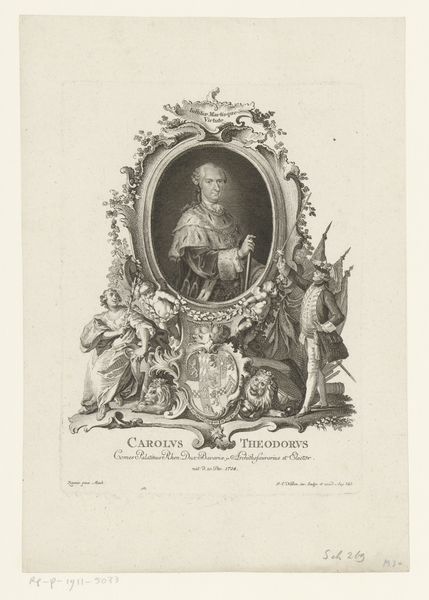
Dimensions: height 224 mm, width 159 mm
Copyright: Rijks Museum: Open Domain
Editor: This engraving, *Portret van Giovanni Battista Serbelloni*, made between 1761 and 1788 by Johann Esaias Nilson, it's just… stately! The composition feels very formal, almost like a stage set. How do you interpret this work? Curator: The symbols employed here resonate across centuries. Note the laurel wreath, framing Serbelloni: an ancient signifier of triumph and status. Ask yourself: What power dynamics are at play? Editor: Power dynamics? Like how he’s being presented? Curator: Precisely! The figures flanking his portrait are allegorical. Their armour and weapons represent strength and protection, key virtues ascribed to nobility at the time. And consider the coat of arms: heraldry as condensed narrative, instantly conveying lineage, rights, and allegiances. How does this affect our understanding? Editor: It definitely elevates him…makes him seem almost divinely appointed to his position. So it's about the language of symbols defining legacy? Curator: Indeed. Nilson is crafting an image steeped in cultural memory, appealing to ingrained visual cues. Look at how even the lettering has that ceremonial calligraphic font. Editor: I never thought of calligraphy as symbolic, but now that you mention it...It makes the inscription more regal. I see so much more looking at this through your lens! Curator: It is the visual rhetoric, communicating power and belonging beyond words. We find echoes of such symbolic representation throughout history. Always remember symbols tell stories.
Comments
No comments
Be the first to comment and join the conversation on the ultimate creative platform.
